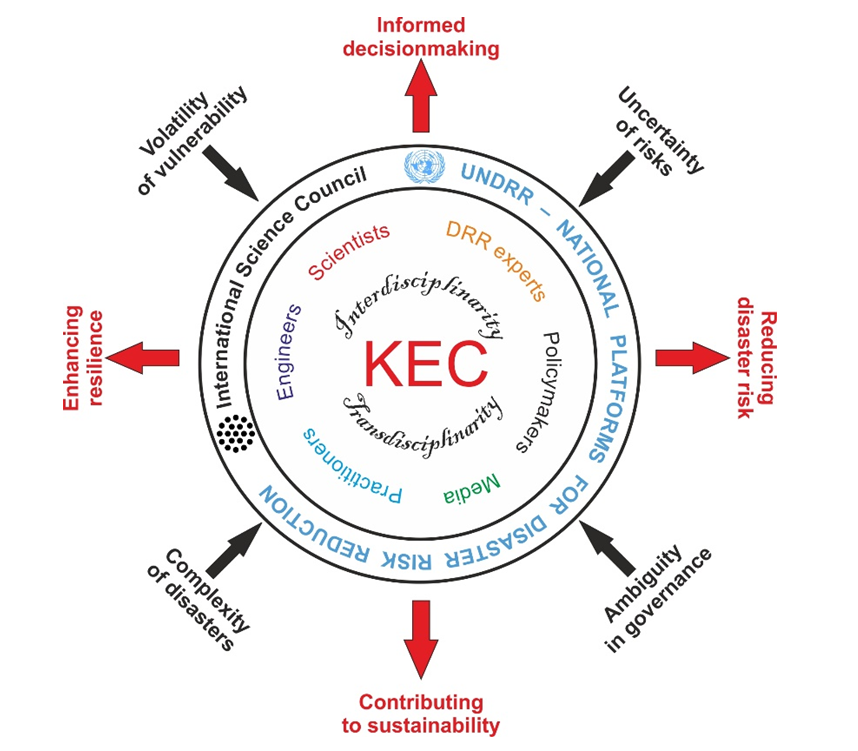This paper analyses science diplomacy efforts to reduce disaster risks and proposes establishing national knowledge exchange centers (KECs) to help individual states adhere to their Sendai Framework goals.
KECs are considered to be interconnected globally and work together to promote resilience efforts by facilitating sharing of information and strategies in risk monitoring, assessment, and ultimately reduction across the globe. KECs can provide high-quality scientific evidence for informed decisionmaking along with a component related to disaster science media to ensure that appropriate knowledge reaches a variety of people who need it in different forms tailored for them. KECs can promote transdisciplinary education in disaster-related science diplomacy (i.e., disaster diplomacy). The United Nations Office for Disaster Risk Reduction (UNDRR) and the International Science Council (ISC) can provide assistance to KECs through UNDRR National Platforms and ISC Members.

This work was carried out by a team of scientists from France, Germany, New Zealand, Norway, Russia, Switzerland, UK, and USA. Russian co-authors are Dr. A.T. Ismail-Zadeh, Chief Scientist of the Institute, and Prof. P.A. Berkman, Director of the Center for Science Diplomacy at MGIMO University.
Kontar, Y.Y., Ismail-Zadeh, A., Berkman, P.A., Duda, P.I., Gluckman, P., Kelman, I., and Murray, V. (2021). Knowledge exchange through science diplomacy to assist disaster risk reduction. Progress in Disaster Science, 11, 100188. DOI: 10.1016/j.pdisas.2021.100188

